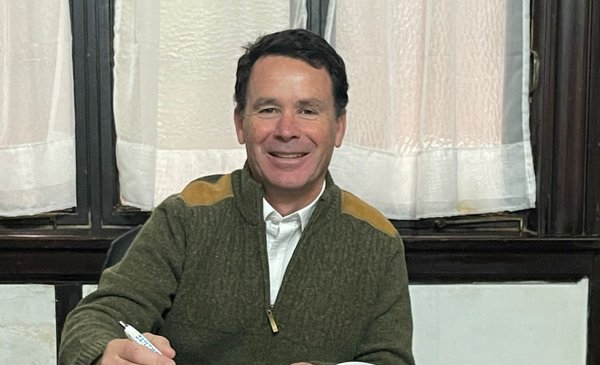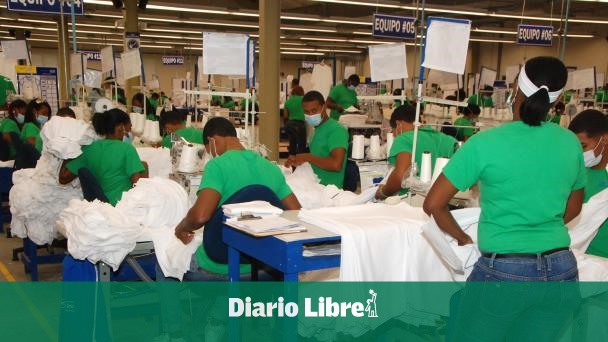Martin Uria, producer in Cerro Largo, assumed the presidency of the Rural Federation (FR) on Monday, June 6. A few days later, already exercising that responsibility, he granted an interview to The Observer in which, among other considerations, he pointed out the value of accelerating some government efforts, taking into account that “electoral times” will soon arrive, where it is more complicated for the political sector to be focused on generating solutions to the demands that arise from the productive sector .
If it is projected at the end of the government period that you began as president at the head of the RF and you had to choose an objective to leave with the same materialized, what would it be?
A strong and professionalized agricultural union.
And in case of choosing one that is not linked to the union?
The solution to the problems generated by dogs.
How do you feel when there are people who question what you demand as a solution to that problem?
The way these people see the issue is reasonable, we understand that. They are people who live with or know certain dogs, those that are pets, who live with them in their homes, in their environments, where the rule is that they are well and do not cause problems for anyone. We, in the productive sector, look at another dog, in which it does not apply to that responsible ownership, because they do not have an owner, they are loose dogs and not only in the campaign, causing many inconveniences, also to people in the cities. and towns, causing accidents with seriously injured people and even deaths. In the case of the field, it is clear that there is a direct effect on the productive activity and as producers that we are we cannot look to the side. When we make a statement, it is from our point of view and the people who live with dogs in the city and practice responsible ownership naturally have a different point of view. There are different looks because they are different dogs. We are committed to responsible ownership and therefore to the capture of ownerless dogs.
How do you see the link between the productive sector and those who have responsibilities in the national government?
There is dialogue, today we can talk with people who are in government but who know the productive sector and know what is happening in the sector, what is right and what is not right, so dialogue is easier. We see that things have been achieved, but there are others that must be directed to start resolving them. We want things to materialize, because electoral times will soon arrive and the political sector, which is the one that has to make those decisions, gets a little distracted. We now have a short period to specify what is being requested from the productive sector, not only for the good of the productive sector, but also for the good of the country.
To what things does it allude, to name a few examples?
For example, the decree on loose animals and resolutions on health campaigns, the issue of control of the hook, livestock transit guides, roads, telephone coverage signal, the various bureaucracies and there it goes. There are known issues and others that are emerging. Now a federated raised us the problems of floods that exist in Rocha, the water regulation project that today is stopped. There are general issues that sometimes the producers do not even know that the institutions are above them to demand solutions, and other specific issues raised by the local unions that we have to attend to as the national union that we are.
Although there are nuances, with some items with their yellow lights on, in general the sector is seen as in the midst of one of the most positive moments in memory. From it is spilling everything that is due?
We think so. There is a very important spill, agriculture spills, to see it you just have to walk around the country. In recent years, despite having gone through a pandemic that we know has complicated everyone, a great transformation has taken place inside. There is one thing, hand in hand with this, that is never fully recognized: the position that Uruguay has in the world today, exporting quality meat, wool, dairy products and grains, among other products, to very demanding markets, generating employment, generating foreign exchange, generating tax payments that make many things work, everything has the producer as a great explanation, it is a consequence of the work of the producers over a long time to reach this moment with a quality product, safety, with sanitary certainties , contemplating animal welfare. That distinguishes us in the world and it is thanks to the producer.
Is it giving, at a good time, an adequate level of reinvestment in the business?
Producers have a particularity, we live from the agricultural sector that requires an attitude of constant reinvestment of profits when there is margin. Sometimes there is no margin, it has happened, that is clear, but now there is and when there is, not only is more taxed, more is contributed, it is also when that margin is used to make investments in the property, in the fences, in animals, it is not that we put the money in our pocket and buy an apartment in Punta del Este overlooking the sea. Be careful, if an investment of this type can be made, that is not bad, but before taxes are paid, jobs are reinvested in the business to continue doing what we know how to do in a better way. I insist, it is enough to walk around the country to see it, a clear example is the enormous investment in machinery in agricultural areas.
What reading do you make of the value of Mercosur and direct negotiations with other markets?
It is a necessity to go out to negotiate to sell in the best way what is generated in the country. This is essential for the sector, in a purely exporting country. It is not understandable to have to limit ourselves to something that we know we can improve. From the Rural Federation we propose to the government that we have to put the foot on the accelerator in this, for many years we have seen a stopped Mercosur, with the countries making decisions without consultation, Brazil did it recently, I think that Uruguay should take a path of press the accelerator and try to finalize all the free trade agreements that are possible.







